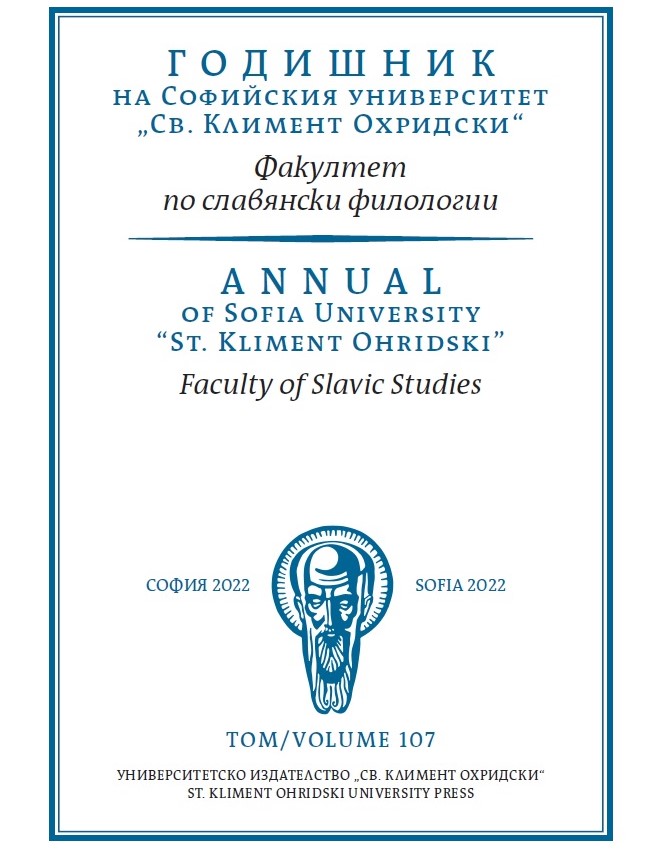Любовта, смъртта и смисълът на живота в романите на Димитър Димов
Love, Death, and the Meaning of Life in the Novels of Dimitar Dimov
Author(s): Juliana StoyanovaSubject(s): Language and Literature Studies, Studies of Literature, Bulgarian Literature
Published by: Софийски университет »Св. Климент Охридски«
Keywords: main characters in Dimitar Dimov’s novels; love; death; meaning of life; hedonism; altruism
Summary/Abstract: In Dimitar Dimov’s novels, the interrelationship between love and death is essential both to the interpretation of the characters and to the philosophical and psychological messages of his works. Love is seen by existentialists (but also by psychologists, psychiatrists, psychoanalysts, and religious philosophers of the 20th century), first, as an attempt to escape loneliness and as an alliance with others in the shared desolation of the “human situation”; and, second, as salvation from the feeling of doom and as a way to counteract death. Love, as giving meaning to existence, finds expression in the actions of Dimov’s characters, which fit into the key concepts of altruism against hedonism. The choice of the altruistic vs hedonistic solution to the basic question of existence determines the personalities and destinies of the main characters in Dimov’s novels.
Journal: Годишник на Софийския университет „Св. Климент Охридски“, Факултет по славянски филологии
- Issue Year: 107/2022
- Issue No: 107
- Page Range: 5-35
- Page Count: 30
- Language: Bulgarian

